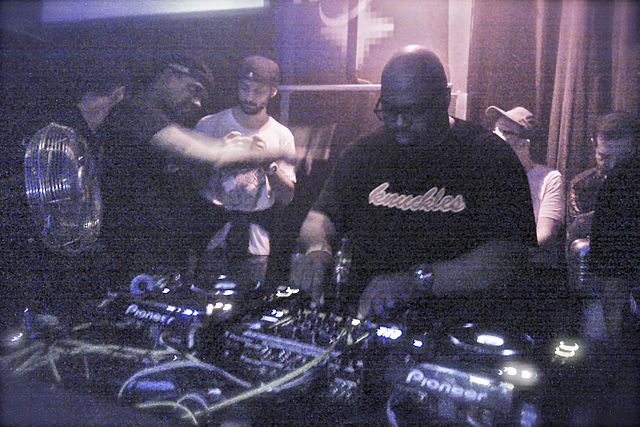
CHICAGO – Frankie Knuckles, a Grammy-winning Chicago disc jockey known as the “Godfather of House Music” who worked with artists including Michael Jackson and Diana Ross, has died at age 59.
Knuckles died Monday in Chicago, the Cook County medical examiner said Tuesday. The medical examiner said a cause of death was not available.
Knuckles is considered a key figure in the evolution of the house music genre, dating back three decades to venues in Chicago and New York.
“When you’re as fortunate as most of us working DJs to be able to share our creative blessings with the rest of the world, no matter how great or small, wouldn’t you agree that it’s best to give the world the best of who you are?” Knuckles said, in a quote provided Tuesday in a release from his company, Def Mix Productions.
Mayor Rahm Emanuel said Tuesday that Chicago has lost “one of its most treasured cultural pioneers.”
Knuckles was born Francis Nicholls on Jan. 18, 1955, in the Bronx. He worked as a DJ in the early 1970s in New York before moving to Chicago in the late 1970s. In Chicago he was resident DJ at the city’s The Warehouse club until it closed in 1983.
It was there that he defined House music’s distinct style and took on the role of DJ as tastemaker, said Phil White, co-author of “On the Record: The Scratch DJ Academy Guide.” Knuckles “defined really what House music was in terms of style,” White said. Knuckles even would cut and tape together pieces of reel-to-reel recordings to make extended tracks, he said.
Knuckles went on to have his own recording career, putting out his own albums on Virgin Records and working as a producer and remixer with many famous musicians. He had a hit with his first album’s first single, “The Whistle Song.”
Knuckles won a Grammy in 1997 for Remixer of the Year and Chicago named a stretch of road near downtown for him, calling it “Honorary ‘The Godfather of House Music’ Frankie Knuckles Way.” He also was a governor and trustee for the New York City chapter of The National Academy of Recording Arts and Sciences.
“His electrifying remixes and high-energy performances on the turntables packed clubs for decades, and he inspired a generation of DJs, bringing house music to the mainstream,” the academy said in a Tuesday statement.
___
AP researcher Rhonda Shafner in New York contributed to this report.